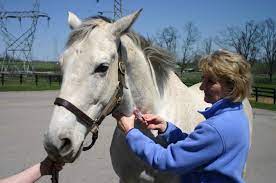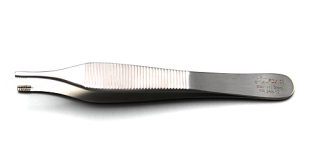What is a Coggins test?
A Coggins test is a blood test done mainly on horses and sometimes on donkeys to check Equine Infectious Anemia (EIA), caused by the Equine Infectious Anemia Virus (EIAV). It is a virus that affects horses mainly and sometimes donkeys too. This test is named after the name of Leroy Coggins. Dr. Leroy Coggins, who studied at Cornell University, discovered this disease in 1970. Leroy Coggins was a veterinarian who made this test to detect Equine Infectious Anemia found in blood samples of horses and donkeys. Equine Infectious Anemia is a blood-borne disease that resembles the illness, which is the human immune virus (HIV) in human beings. It is also known as swamp fever. The United States Department of Agriculture (USDA) announced the Coggins test the official test for Equine Infectious Anemia (EIA) in 1973 so that you can travel along with your horse without any risk for the population of the horse.
What is a Coggins test Procedure?
The Coggins test procedure is done by a licensed veterinarian who draws blood from the present horse and then sends this sample to an accredited lab. The lab will then do a test to determine the Equine Infectious Anemia (EIA) (antibodies that are a protein to distinguish the EIA virus). They will either give you a positive or negative report that means either the EIA antibodies present or absent. If the test reports are positive, then your horse will die after some time.
These results are usually called Coggins papers and are given in the form of paper or sent digitally. This Coggins test requires your information, including your name, phone number, and your address, as well as veterinarian information, including their name, association name, etc. They will also ask for your horse’s information, including the color of the horse, sex, and any identification mark if present. If there is no identification mark, they will mark your horse when taking the sample. They will also collect much more information about the horse while collecting the sample. After all the information is taken, the lab will perform the test with well-qualified veterinary staff.
What are Coggins’s test Requirements by the state?
Every country has its type of Coggins test. This is mainly used to protect the horse population. Mostly, it is mandatory to do Coggins test while entering any country so that the disease might not spread to any other horse. This disease is mainly transmitted by close contact with the infected horse or by using a used syringe, surgical instruments, other blood-contaminated material, and horse flies and deer flies. Coggins test lasts 12 months, and only after 12 months, you can renew the test. Coggins test is only used when you were traveling to another country, or you were selling your horse, and doing this, you need a negative report of Coggins test. Many horse owners used integrated pest management to reduce flies that cause EIA.
What is a Coggins test Positive?
After the arrival of your horse’s Coggins reports, you need to move your horse if it is positive. If you have more horses, you need to separate the infected horse and check the other horse because it is spreading disease and can infect all the horses you have. You cannot travel with your horse until you get a Negative Coggins report, and also, you can not sell the horse. There are many EIA symptoms to know and get checked earlier to move that infected horse, and it cannot cause harm to more horses. Many of the symptoms are Fever, anemia (the number of red blood cells reduces), edema (stocking up), or weight loss/muscle wasting. There is no vaccine or treatment discovered yet. It is a fatal disease. That means it causes death.
What is a Coggins test Negative?
If you need to travel along with your horse, you will need a negative Coggins test. First, you need to find a well-qualified veterinary specialist and get the reports done by giving your horse’s blood sample. After taking the sample, the present veterinary specialist will mark your horse with any identification. In case the lab has tested your horse before, your horse will already have an identification mark, and they will use it. It is an important test to be done by every horse owner to save the horse population from this fatal disease. Once you have Negative Coggins, you can travel safely with your horse without causing any harm to the horse population in any other country.
 Health & Care Information
Health & Care Information 


